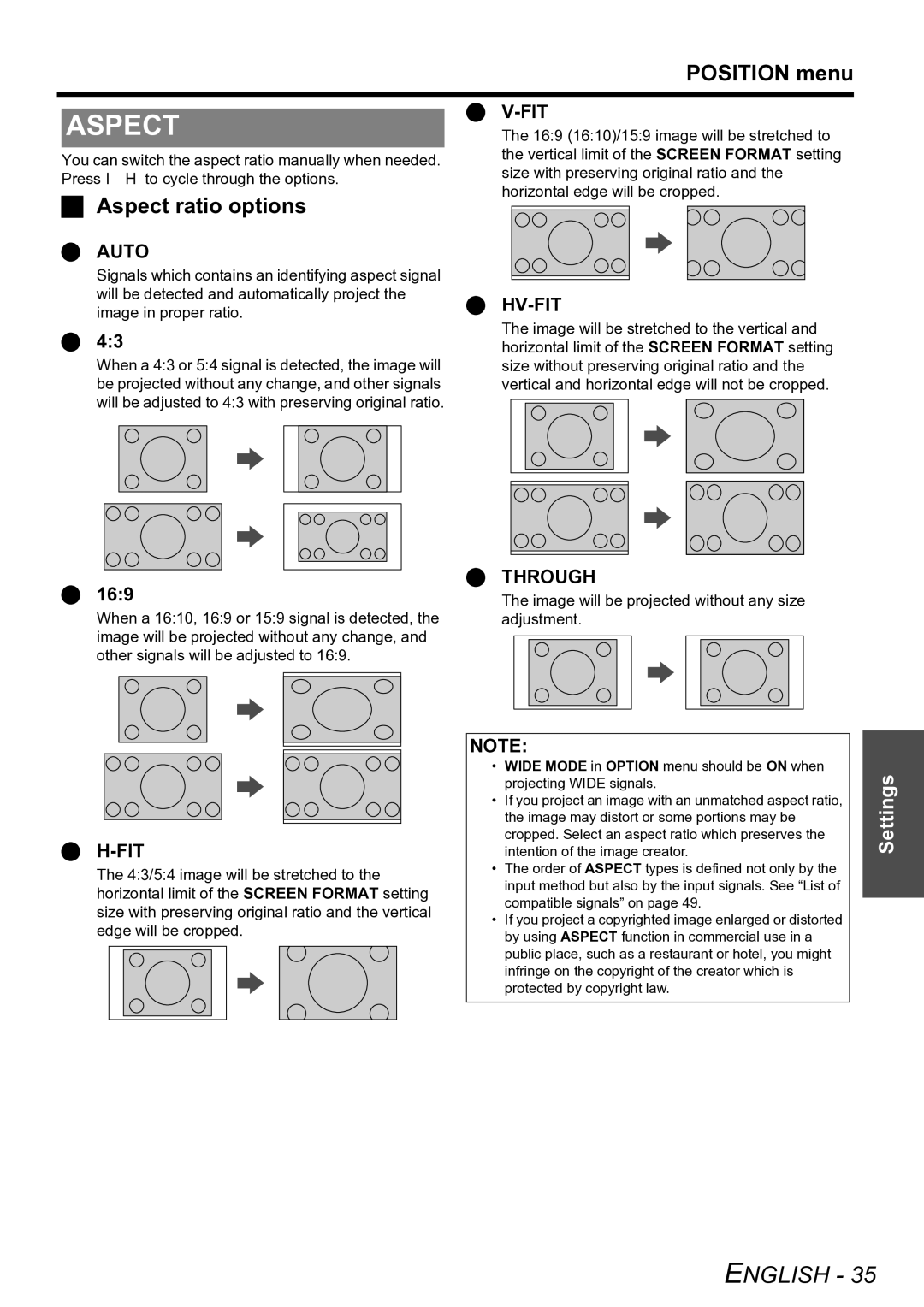
|
|
|
| POSITION menu | ||
|
|
|
|
|
|
|
|
| |||||
| ASPECT | |||||
| The 16:9 (16:10)/15:9 image will be stretched to | |||||
| You can switch the aspect ratio manually when needed. | the vertical limit of the SCREEN FORMAT setting | ||||
| size with preserving original ratio and the | |||||
| Press I H to cycle through the options. | |||||
| horizontal edge will be cropped. | |||||
| Aspect ratio options | |||||
|
|
|
|
|
| |
|
|
|
|
|
| |
| AUTO |
|
|
|
|
|
Signals which contains an identifying aspect signal will be detected and automatically project the image in proper ratio.
4:3
When a 4:3 or 5:4 signal is detected, the image will be projected without any change, and other signals will be adjusted to 4:3 with preserving original ratio.
16:9
When a 16:10, 16:9 or 15:9 signal is detected, the image will be projected without any change, and other signals will be adjusted to 16:9.
The 4:3/5:4 image will be stretched to the horizontal limit of the SCREEN FORMAT setting size with preserving original ratio and the vertical edge will be cropped.
HV-FIT
The image will be stretched to the vertical and horizontal limit of the SCREEN FORMAT setting size without preserving original ratio and the vertical and horizontal edge will not be cropped.
THROUGH
The image will be projected without any size adjustment.
NOTE:
•WIDE MODE in OPTION menu should be ON when projecting WIDE signals.
•If you project an image with an unmatched aspect ratio, the image may distort or some portions may be cropped. Select an aspect ratio which preserves the intention of the image creator.
•The order of ASPECT types is defined not only by the input method but also by the input signals. See “List of compatible signals” on page 49.
•If you project a copyrighted image enlarged or distorted by using ASPECT function in commercial use in a public place, such as a restaurant or hotel, you might infringe on the copyright of the creator which is protected by copyright law.
